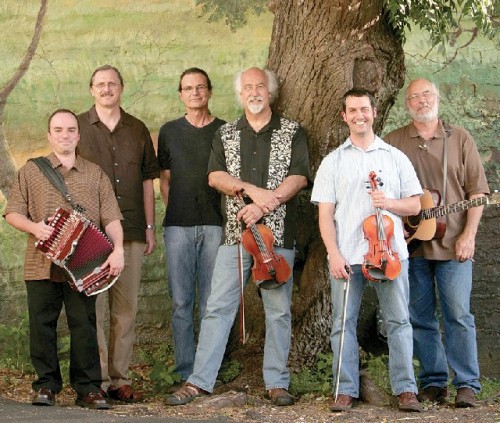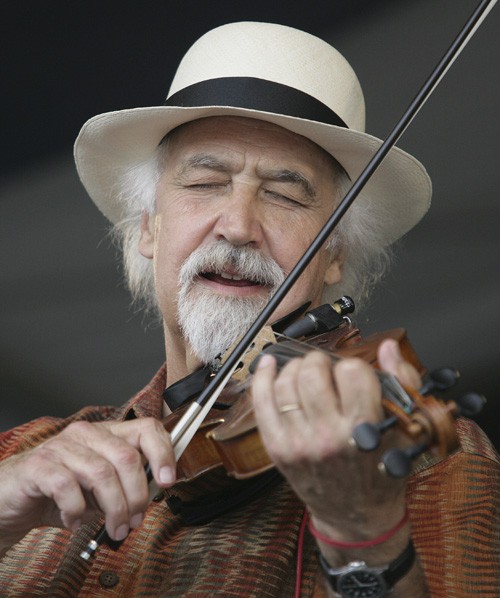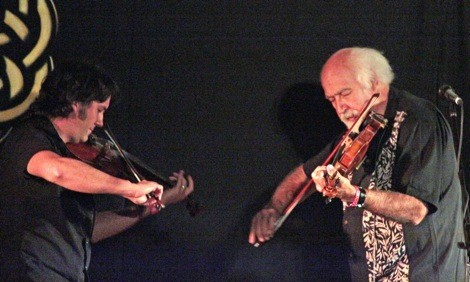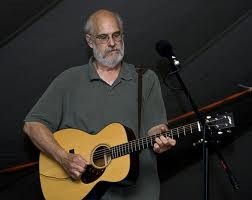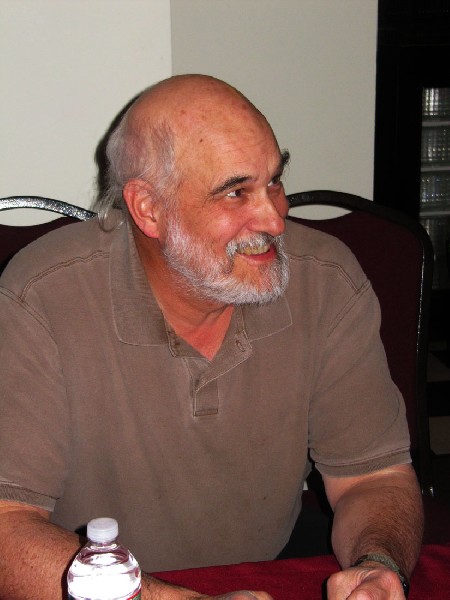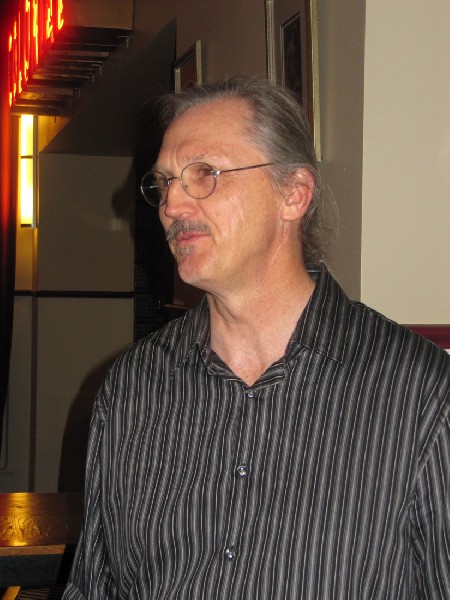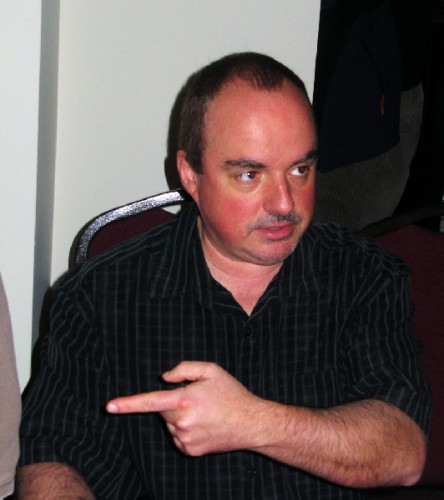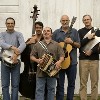Michael Doucet avec Beausoleil at the Colonial
Cajun Sun Brightens Berkshire Gloom
By: Charles Giuliano - Feb 25, 2012
Garrison Keillor has dubbed frequent guests and multiple Grammy winners Michael Doucet avec Beausoleil “The greatest Cajun band in the world.”
Who are we to argue?
Last night they lit up the Colonial in Pittsfield.
It was a too rare opportunity to hear Cajun music, world’s best, or otherwise.
Beausoleil features as leader, Michael Doucet, violin and vocals, his brother David Doucet, guitar and vocals, Jimmy Breaux accordions, Billy Ware percussion, Tommy Alesi drums, and Mitch Reed, fiddle and bass.
Last night they were joined by a renowned local musician, tenor sax player, Charlie Neville. He meshed perfectly and unobstrustuvely with the arrangements.
The band is named for Joseph Broussard dit Bausoleil. He was the leader of Acadian resistance to British deportation in 1775. He led the attack against Dartmouth Nova Scotia. After a stint in prison he led 193 exiles to Louisiana where he died in 1765.
Doucet proved to be a charming and informative host.
Although there was a strong turnout, particularly for a nasty night in February, few in the audience seemed familiar with the music or knew much about Cajun history and heritage.
That included our elderly neighbors who had never heard the music or been to Louisiana. He said they came because they like bluegrass and were curious.
During intermission I heard someone comment, aptly, “It’s strange sitting and listening to dance music.”
Which is precisely what they performed.
A fabulous evening of dance music for people sitting down.
Perhaps during a return visit the Colonial might rip up the seats.
Not to say that many would be adept at the Louisiana two step.
“We don’t call this Cajun music or Zydeco” Doucet said charmingly. “When I grew up we called it French Music or Old Fashioned Music.”
Unfortunately it is a folk tradition and culture which is slowly fading away.
Doucet commented that a few decades ago a million people spoke French in Southwest Louisiana. Now it is under a hundred thousand. He added that it is not contemporary French like one would hear in Paris. Cajun is archaic French handed down from the 17th century settlers in Acadia. They were rudely arrested and deported by Scottish settlers when the French lost the French and Indian War. The region was renamed Nova Scotia.
“Garrison Keillor’s people” Doucet quipped.
We have traveled in Nova Scotia and heard country dance music, heavy with fiddles and percussion, that was rather like the French music that Beausoleil performs.
When the thousand or so refugee Acadians secretly made their way South down the rivers a Spanish flag flew over Louisiana followed by a French one and then the Stars and Stripes.
A woman from the audience came forward and put a Cajun flag on the stage.
“That’s the one” Doucet commented.
The culture of Louisiana is incredibly complex with its many elements and influences. Including Creole which is different from Cajun although they are both essentially French.
That diversity was richly conveyed by Beausoleil. The program ranged from traditional fiddle battles to percussive dance tunes and even some newer compositions that one critic aptly dubbed Swamp Rock.
While Doucet introduced the selections in English all of the vocals were in that archaic French. Michael was joined on vocals by his somewhat stoic, brilliant, guitarist brother, David.
The band was so tight. Particularly that metronome like beat. When they got down and gritty the rhythm pulsed through you like an organic strobe light. It was just impossible to sit still.
Mitch Reed alternated between fiddle and electric bass. In exchanges with Michael they matched each other note for note. Like the dueling banjo pickers in the theme song of the film Deliverance.
In the center of the music was hypnotic accordion by the diminutive Jimmy Breaux. He performed on several accordions but it was difficult to discern the differences. Billy Ware provided a variety of persuasion accents from conga drums to triangle and wood block. At times he beat on the rims of his hand drums with thin sticks. Tommy Alesi laid down a steady beat on his drum kit.
We much enjoyed the humor. Particularly about food. Like crawdads. Or swamp bugs. You suck out the heads. “If you burn some food they call it Cajun.”
Like blackened fish and stuff.
No. There’s more to it than that.
Next time we’re in New Orleans, hopefully real soon, we’ll be sure to head out into the Bayou. Cajun culture is best consumed in its natural habitat.
But last night in Pittsfield was tres tres bon.

